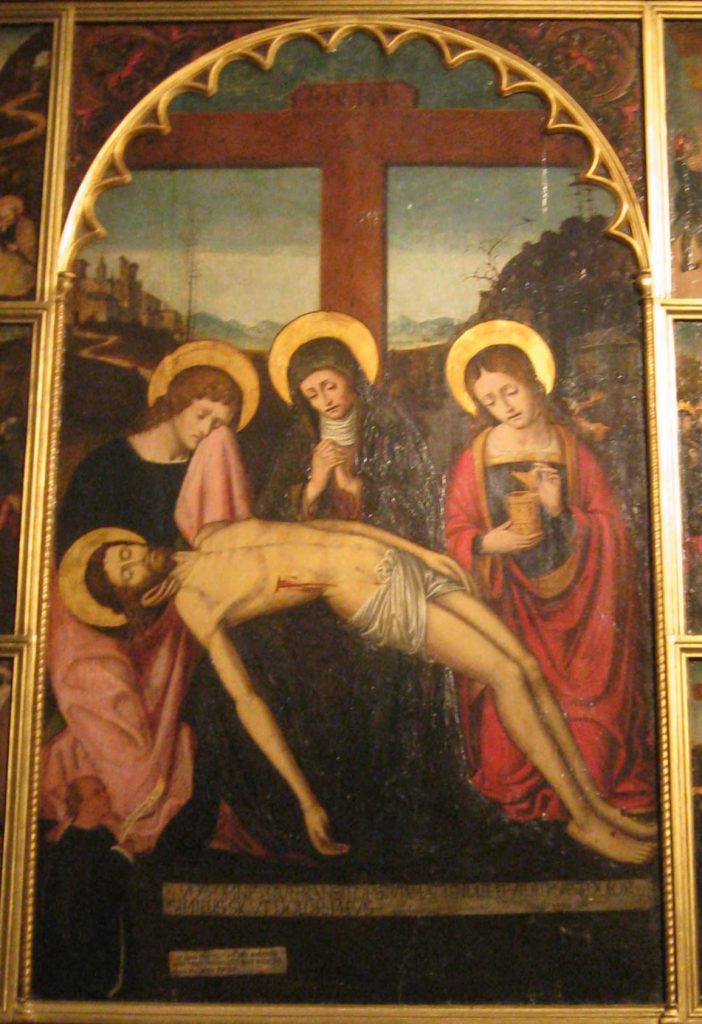Last week I was in Rome for a session of the Pontifical Commission for Latin America. While I was there, I had the grace to talk briefly with our Holy Father Pope Francis.
I told our Holy Father that we love him and that we’re praying for him. The Pope was very grateful and he sent home with me his apostolic blessing to all of you and your families. He asked me to ask you to continue praying for him.
I also told our Holy Father that he is invited to come to Los Angeles. He just looked at me and smiled. So let’s pray for that this week!
As I mentioned in my column last week, I’m inviting all of us to take the Beatitudes as a point for our reflection during this holy season of Lent.
In the Beatitudes, Jesus is calling us to live as he lived on this earth. And the first of his Beatitudes might be the most provocative:
Blessed are the poor in spirit, for theirs is the Kingdom of Heaven.
Poverty doesn’t sound much like the way to happiness — especially in a consumer society like ours, which is so focused on wealth and material things.
But Jesus isn’t talking about the social condition of poverty.
The Bible is clear and our Catholic tradition is clear. Material poverty is not a “blessing” or something God “wants” for his children.
God has a special love for the poor. He calls those who believe in him to serve the poor and to build a society where everyone has what is needed to lead a dignified life.
Jesus made our love for the poor one of the conditions of our salvation. What we do for the poor, we do for him. And what we don’t do for the poor — our indifference — reflects our lack of love for God.
So in the Beatitudes, Jesus isn’t talking about the kind of poverty that people don’t choose — the poverty that is imposed by social injustice or misfortune.
Instead, he is calling us to a poverty that all of us are free to choose — the poverty that he himself chose in assuming our humanity.
St. Paul said that although Jesus was rich, he made himself poor for our sake — so that by his poverty, we might become rich.
Jesus was born in to this world in the poverty of a manger. In his ministry, he had no possessions, no home. Birds have nests, but the Son of Man has nowhere to lay his head, he said.
Jesus spent his time on earth giving himself to others, and in the end he gave up his final possession — his own body, his own life. In all of this, he was giving us an example. He was showing us the way to be “poor in spirit.”
Poverty of spirit is not about what we have or how much we have. Rich people can be poor in spirit, just as poor people can be selfish and greedy.
Where your treasure is, there your heart is also, Jesus said. Jesus wants us to live with a spirit of detachment, not being “possessed” by our possessions, knowing that this world’s treasure can never satisfy our hearts.
Being poor in spirit means knowing that we depend on God for everything. It means knowing that everything we have — even what we’ve earned through our own creativity and hard work — is God’s gift to us. To be poor in spirit is to live like little children, trusting that our Father will always provide us with every good gift.
Those who are poor in spirit know that love and the Kingdom of God are the only things in life that are really worth having — and they are the only things in life that we can never have through our own efforts.
Jesus told his first disciples to take nothing for their journey. And he calls all of his followers to have a simple lifestyle. To enjoy what we have in a spirit of gratitude and generosity — with our hearts and hands always open to the needs of others.
In calling us to be poor in spirit, Jesus is calling us to be rich in giving to those who are poor and in need of our help.
So this week, let’s pray for the grace to be poor in spirit and to find new ways to travel more lightly on our journey of faith.
And let us ask our Blessed Mother Mary to pray for us, that we might have the grace to live with less, so that we have more to give more to our brothers and sisters in need.
Archbishop Gomez’s book, “Immigration and the Next America,” is available at the Cathedral Gift Shop (www.olacathedralgifts.com/immigrationandthenextamericarenewingthesoulofournation.aspx). Follow him at www.facebook.com/ArchbishopGomez.

